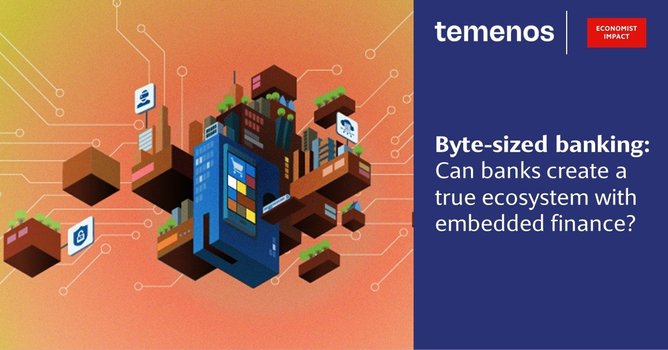Banks Raise Interest in ESG and Cloud to Retain Customers

Not so long ago, most people would stick with the same bank for life.
Research published by the European Payments Council back in 2013 showed that people were more likely to stay loyal to their brick–and-mortar banks than their partners (remaining with their banks for 17 years on average while marriages averaged less than 12 years).
Blame the parents. More than half of those questioned at the time chose their bank based on the institutions patronised by their mother or father, and moving bank was a cumbersome chore.
But times, thankfully, have changed. Nowadays, it is much easier and more common for customers to change banks, often enticed by special monetary incentives but increasingly down to the service they receive as customers and the bank’s sustainability credentials.
A September 2023 survey by Statista showed that 8% of Canadians were ‘Very Likely’ to change their primary bank, with a further 13% ‘Likely’.
In the UK, there was a 69% increase in the number of people switching banks in Q4 2022, according to research by the Current Account Switch Service (CASS), with more than 367,000 shifters attracted by those cash incentives and better sevice.
Digital banks are changing the game. Flexible, user-friendly fintechs are winning customers with simple, mobile-first banking that younger generations especially are expecting. Why is it so competitive? That’s because even fintechs like Monzo and Revolut estimate lifetime customer value at more than US$2,700.
This is why both traditional banks and fintechs are upping their game when it comes to their sustainability and ESG credentials.

Banks embrace ESG to flick the switch
A new report by Economist Impact for Temenos highlights the importance to these banks, and their customers, of engagement with ESG.
The report surveyed 300 banking executives, with 73% saying banks will offer more sustainable options in the next five years to meet customer demand. One in four (24%) European consumers are likely to switch banks over ESG. And in the UK, 61% want their bank to do more when it comes to positive social and environmental impact.
Banks are taking notice. The report finds that 73% of banks are offering more embedded ESG propositions to customers, and providing capital to environmentally friendly projects (74%).
With the need to embrace AI and also lower their carbon footprints, banks are moving to public cloud, with a slim majority (51%) believing banks will not own data centres in the next five years, instead switching to public cloud.
With the focus on lowering their carbon footprint, as well as the increasing use of data-intensive AI, banks are inevitably moving to the public cloud – 51% of respondents agree that banks will no longer own any private data centres in the next five years after moving to the public cloud.
The report says data centres are expected to consume 13% of the world’s energy by 2030, which equates to a staggering 6% of the world’s carbon footprint.
Banks need to show they are taking action on climate issues
Economist Impact says ecosystems are enabling banks to play a more significant, embedded part in people’s lives, which is also highlighting the role banks play in tackling climate change.
Banks are reacting by providing capital to climate-friendly projects (74%) and stopping funding for carbon-intensive industries (64%). Some 37% of banks are also investing in low-carbon technologies and decarbonisation innovations. When it comes to their own operations, 31% of banks are reducing emissions internally and in their supply chain.
Off the back of this report, Temenos has launched Temenos Enterprise Services on Temenos Banking Cloud, enabling banks to deploy software in just 24 hours – allowing them to launch new products to market or modernise legacy systems.
Temenos claims this move could see banks reduce their carbon footprint by 95% compared to on premise alternatives – which could make all the difference in an increasing competitive banking landscape built on ESG credentials.






